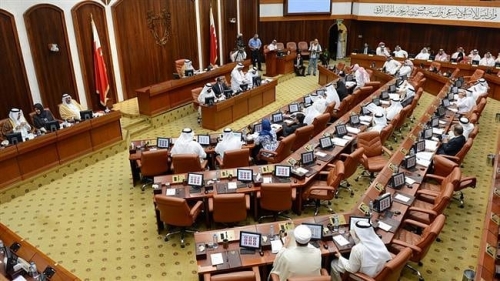A new proposal for a corporate income tax in Bahrain has been put forward by a group of lawmakers with the aim of promoting sustainable economic growth and enhancing collaboration between the public and private sectors. The proposed legislation is intended to create a comprehensive tax system for companies operating within the kingdom, ultimately contributing to balanced development and the overall well-being of citizens. Emphasis has been placed on exempting lower-income individuals from taxation to ensure that their minimum standard of living is not compromised.
In addition to promoting economic growth, the proposed corporate income tax aligns with Bahrain’s broader strategy of diversifying its revenue sources beyond natural resources such as oil and gas. The new bill seeks to revitalize the national economy by imposing taxes on financial institutions and commercial companies engaged in specific economic activities outlined in the proposed legislation. This move towards diversification is seen as essential for Bahrain’s economic sustainability and resilience in the face of fluctuating oil prices and global economic uncertainties.
The inclusion of a corporate income tax in Bahrain’s tax system is viewed as a step towards modernizing the country’s fiscal policies and creating a more balanced and sustainable revenue stream. By introducing taxes on financial institutions and commercial companies, the government aims to promote transparency and accountability in the business sector while generating additional revenue to support public services and infrastructure development. This new tax framework is expected to enhance Bahrain’s competitiveness and attractiveness as a destination for foreign investment.
The proposal for a corporate income tax in Bahrain has been met with mixed reactions, with some critics expressing concerns about the potential impact on businesses and economic growth. However, proponents of the bill argue that the tax system is necessary to ensure a fair distribution of tax burden and promote social justice by exempting lower-income individuals from taxation. By diversifying revenue sources and reducing dependence on natural resources, Bahrain can strengthen its economy and create a more resilient fiscal framework capable of withstanding external shocks and economic challenges.
Efforts to promote collaboration between the public and private sectors through the proposed corporate income tax are seen as essential for driving sustainable economic growth and fostering innovation and entrepreneurship in Bahrain. By creating a conducive environment for businesses to thrive, the new tax system aims to attract investment, create job opportunities, and support the development of key industries. The proposed legislation is expected to provide a framework for transparent and accountable taxation practices that will benefit both businesses and the wider community.
In conclusion, the proposed corporate income tax in Bahrain represents a significant step towards modernizing the country’s tax system and diversifying its revenue sources. By promoting sustainable economic growth, fostering collaboration between public and private sectors, and ensuring a fair distribution of the tax burden, the new legislation aims to support balanced development and the prosperity of citizens. While concerns have been raised about the potential impact on businesses, proponents of the bill argue that the tax system is necessary for creating a more resilient and sustainable economy capable of withstanding future challenges.











